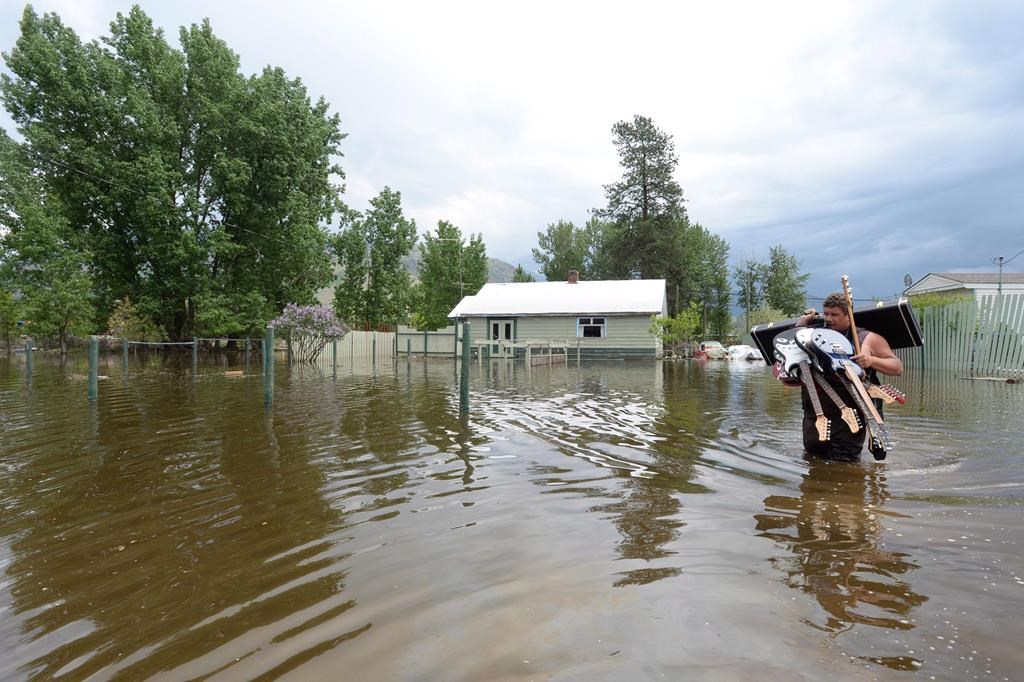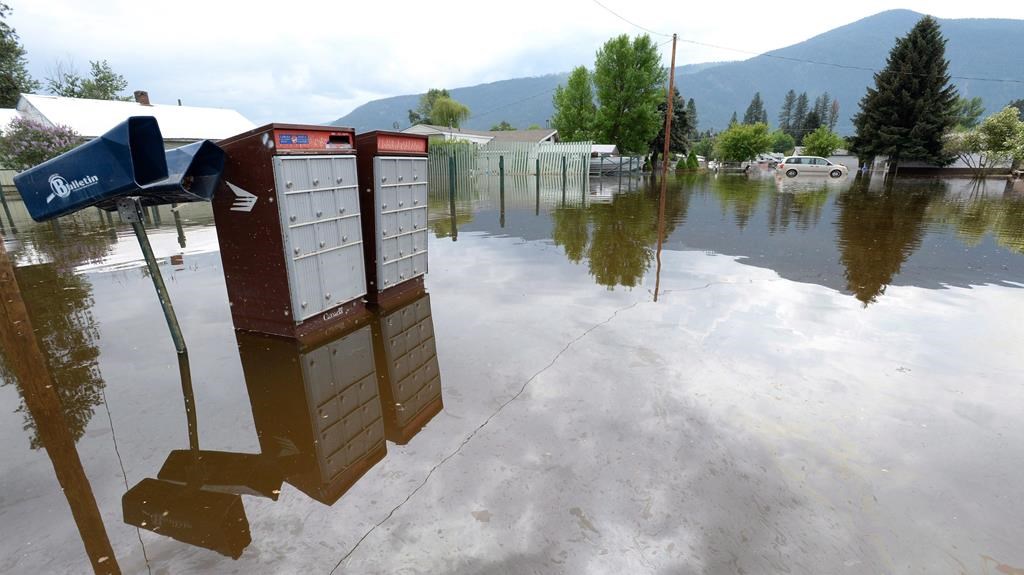Victims of catastrophic flooding in Grand Forks, B.C., in 2018 have launched a proposed class-action lawsuit against the B.C. government and several timber companies, alleging excessive logging caused the disaster.

The homes of plaintiffs Jaime Massey and Jennifer Houghton were extensively damaged when the Granby and Kettle rivers burst their banks, swallowing neighbourhoods and the downtown core, displacing thousands of people and causing millions of dollars in property damage.
In a notice of civil claim filed in B.C. Supreme Court, B.C.’s Ministry of Forests, Lands and Natural Resource Operations is named as a defendant, along with Interfor Corporation, Weyerhaeuser Company, Tolko Industries, NK’MIP Forestry Corporation, NK’MIP Forestry LLP, the Osoyoos Indian Band Development Corporation and Mercer Celgar Pulp Ltd.
The flood-impacted homeowners are bringing the lawsuit forward under the Class Proceedings Act on behalf of the proposed class defined as:
“All persons in Grand Forks, British Columbia, and within 15 kilometres of Grand Forks, whose property, place of residence, assets, business(es), health or livelihood was affected, damaged, lost or destroyed as a result of the flooding event that occurred between the 8th and 11th of May, 2018,” according to the suit.

The suit alleges that the provincial government over-estimated the allowable annual cut block in the Kettle River basin and delegated more timber volume to forest licensees for clear-cutting than what was “available and sustainable for the region,” court documents state.
“This has led to increasing the frequency, duration and magnitude of peak flows,” it says.
“Without sufficient timber regrowth and watershed recovery, the result is increased surface runoff, increased sediment transport, increased water quantity and stream channel discharge associated with flooding that caused the major flooding events in the Kettle and Granby river systems resulting in the damages to the plaintiffs’ and class members’ property.”

Get breaking National news
The suit claims the severity of the May 2018 flood event was the result of forestry harvesting and watershed resource mismanagement, “raising the likelihood of destructive flooding events.”

“The floodwaters that caused the Grand Forks flooding had emanated from the defendants’ land. It is a direct result of the overharvesting cutblocks by the defendants at mid to high elevations, including the cutblocks sold by BCTS for harvesting in the Kettle River basin,” the lawsuit alleges.
Responses to the notice of civil claim have not been filed, but Interfor, the company with the largest share of logging rights in the region, says other factors were to blame.
“The flooding that occurred in 2018 was extremely unfortunate but the accusations in the lawsuit are not accurate,” Andrew Horahan, Interfor vice-president of western operations, said in an email.
Horahan says Grand Forks experienced extremely heavy snowpacks in 2018, as well as a later-than-normal spring, which delayed snowmelt, plus hot weather combined with heavy rains.
“The combination of weather conditions was the main factor in the flooding of (Grand Forks) in May 2018,” he said.

“Interfor has been a strong partner in Grand Forks and continues to operate responsibly and sustainably at all times. This lawsuit is without merit.”
Global Okanagan asked the Ministry of Forests for comment, but it declined, stating the matter is “before the courts.”
The plaintiffs are being represented by Peter I. Waldmann, a Victoria-based lawyer.
A judge must certify the lawsuit before it can proceed. None of the allegations have been proven in court.










Comments